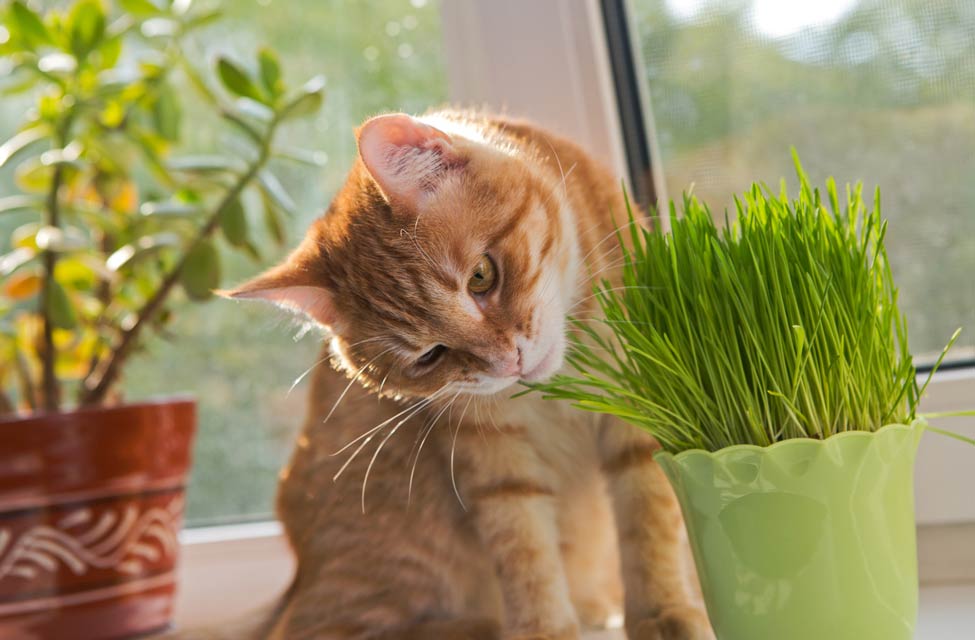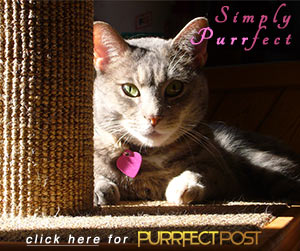Four Plants Your Cat Might Love

Did you know that some plants act as sedatives, depressants, or have no effect in humans but act as stimulants in cats? The most commonly known one is catnip. Check out this list that includes three others because there might be some that are new to you. Your cat would probably love to try them out.
Catnip
Most people who have been around cats know at least a little bit about catnip. It originated in the semi-arid regions of Europe, Africa, and Asia and was brought to the US by European colonists. It's been used over the centuries in humans for nausea and to provide a calming feeling.
Cats exposed to catnip inhale its scent, exposing their Jacobson's Organ to it. Also called the vomeronasal gland, the Jacobson's Organ is on the roof of a cat's mouth, and it takes scent molecules and delivers them to the brain, where they might have various effects. In the case of catnip, the result is usually stimulation, which is thought to be the result of nepetalactone. Cats might roll around, drool, and become more active and hyper.
About 1/3 of cats don't respond in any way to catnip, and kittens also don't react to it until they are at least six months old.
Silver Vine
Silver vine is another plant that causes effects similar to catnip in some cats. In fact, many people feel that its results are more intense than those of catnip.
Some cats that don't seem to react to catnip do have an excited response to silver vine, but neither plant causes a response in all cats.
Honeysuckle
Honeysuckle is a plant that comes in many varieties and one of them, a shrub called Tatarian honeysuckle, can affect some cats the way catnip does. However, it's only the bark that is safe for cats because the berries and flowers are toxic. Because the wood is the part that is used to make honeysuckle cat toys and sprays, they don't smell like the honeysuckle flowers that people might be more familiar with.
All four of these plants could cause a cat to become aggressive, so you should watch your cat carefully the first few times you give each one. If aggression occurs, leave the cat alone until the effect has worn off.
Some cats that don't react to catnip might respond to honeysuckle, so it's worth a try. And if your cat's honeysuckle toy seems to have lost its "oomph," simply spray it with water to rejuvenate the scent and get it working again.
Giving a chunk of honeysuckle wood to your cat might not cause a reaction because only Tatarian honeysuckle produces the response. Also, giving the wood alone is not considered safe because it may damage mouth tissues and is a choking hazard. Instead, choose toys that have Tatarian honeysuckle bark enclosed inside of them, and make sure you inspect them often and throw them away if they start to fall apart.
Valerian Root
Valerian root is a popular herb that people often use to help combat insomnia, reduce anxiety, and lower blood pressure. In cats, it has the opposite effect, resulting in stimulation in some cats.
The substance in the valerian root that scientists believe is responsible for this effect in cats is actinidine and, while it doesn't affect all cats, those cats that don't respond to catnip might react to it.
Some cat toys contain valerian root, and you can also finely mince some yourself and give a small sprinkling of it to your cat. It has a pungent odor that most people dislike so you might wish to keep it in a sealed container when you aren't using it.
You May Also Like These Articles:
Valerian Root: What Is It and How Can It Be Used for Cats?
What Does Catnip Do to Cats? Why Do Cats Like Catnip?
Honeysuckle: An Alternative to Catnip
Why Does My Cat Chew on Electrical Cords?
Will Cats Always Land on Their Feet?
Why Do Cats Like to Sit up High?
How to Take Your Cat on a Plane
Cat Myths: Separating Fact from Fiction



